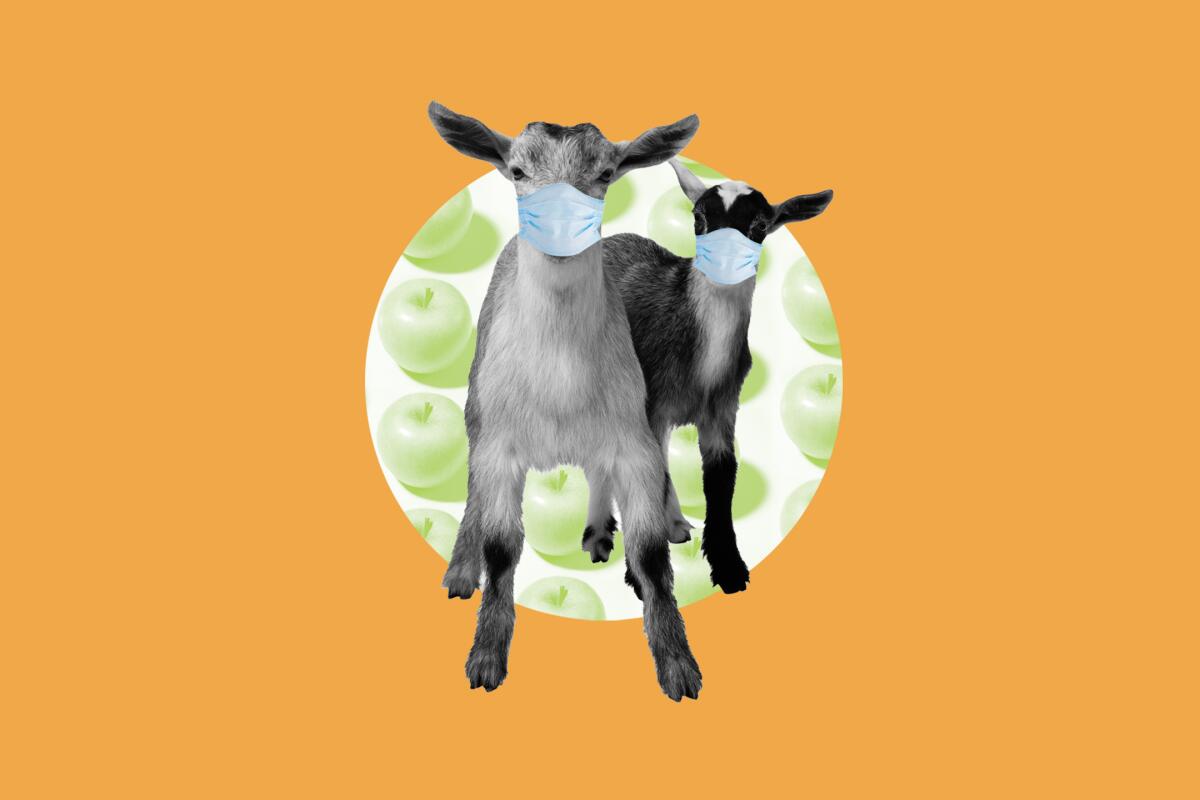Travel plans derailed by COVID-19? Volunteer on an organic farm

- Share via
So you can’t travel to Europe. Or take a road trip to a rowdy music festival. Or sunbathe on a beach.
It’s been a COVID-19 summer, but getting a change of scenery — while meeting new people and learning about sustainable agriculture — is still possible. Just sign up for World Wide Opportunities on Organic Farms.
The organization, founded in Britain in 1971, connects volunteers, or WWOOFers, and farms in 132 countries. WWOOFers include aspiring farmers and curious travelers who work for a few hours a day in exchange for accommodations. Participation is free, excluding the annual cost of a membership ($40 in the U.S.) and transportation to the farm.
To protect participants amid the pandemic, the organization recommends that its hosts allow volunteers to self-quarantine upon arrival and practice physical distancing, according to an announcement on its website.
Prospective volunteers also should follow safety guidelines outlined by the national Centers for Disease Control and Prevention and their local government and should not volunteer if symptomatic or feeling ill.
A recent search on the WWOOF USA website shows that nearly 1,400 hosts, many of whom operate essential farming businesses, are open for volunteers. About 200 are in California.
One farm needs help milking goats for cheese. Another seeks assistance harvesting peaches and nectarines. Prospective volunteers can filter search results to show nearby cities they’d like to visit, animals they’d like to care for and more.
At Palindrome volunteer farm and home stay in Valley Center in San Diego County, WWOOFers must self-quarantine for two weeks when they arrive. They are given their own tent or trailer with an outdoor bathroom and shower and must prepare their own meals and wear a mask when within 12 feet of others.
It’s all about ridin’ and ropin’ at the family-owned V6 Ranch.
“I’m not asking people to sit in a corner all day,” said host Lisa Lillie. “Our WWOOFers actually have the best view on the property. Their trailers are ocean-view. Our backyard is Palomar Mountain.”
After two weeks, volunteers are free to share meals with the host, swim in the pool and care for rabbits while helping set up a hydroponic farm.
Prospective volunteers shouldn’t let remote work or studies prevent them from WWOOFing, Lillie added. Her volunteers work on the site for a few hours a day and then are free to study or pursue their interests from her home. A volunteer from Brazil used the spare time to run her interior design business and learn English.
Vera Valdivia-Abdallah, who runs Love This Horse Equine Rescue in Mojave, has different guidelines. She’s accommodating only one WWOOFer at a time instead of her usual four. She asks that volunteers socially distance before arriving and prefers they stay for at least one month to avoid contact with too many newcomers.
“We figured the least amount of people, the better,” Valdivia-Abdallah said.
Lillie also believes that WWOOFers should embrace longer, more immersive stays while COVID-19 rates remain high instead of the one week that is common.
“People can look at WWOOFing as a place to not go for just two weeks, but maybe say, ‘Where do I want to learn culturally and where do I want to experience other people?’” she said. “When people travel, it’s an education that is priceless.”
More to Read
Sign up for The Wild
We’ll help you find the best places to hike, bike and run, as well as the perfect silent spots for meditation and yoga.
You may occasionally receive promotional content from the Los Angeles Times.





